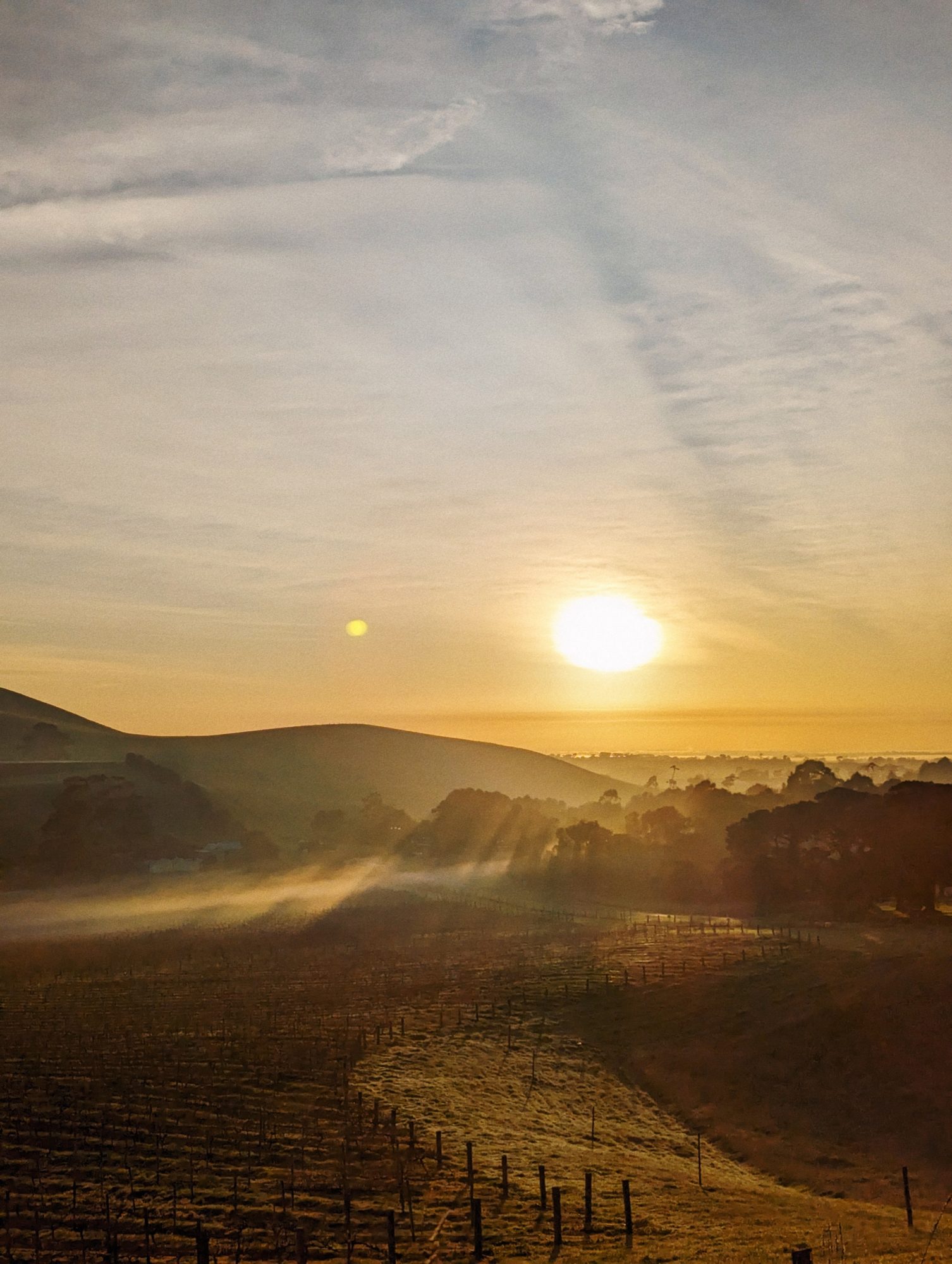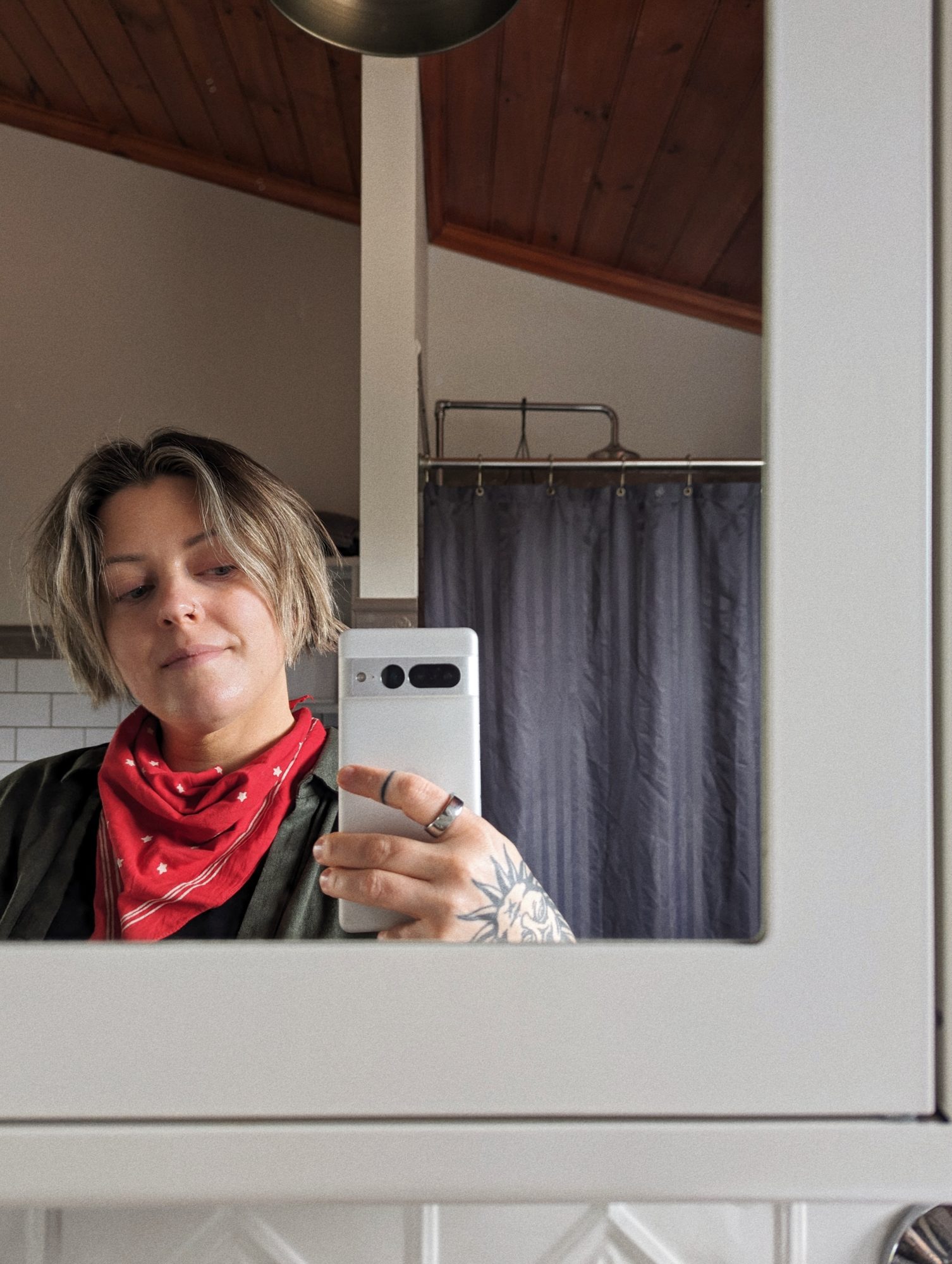For much of my life, I’ve struggled with impulsivity, and black and white thinking. In 2020, I learned that I have measurable differences in my neurology that make it harder for me to regulate emotions and reactions. As far back as I can remember, the flow-on effects of this has affected my life, relationships, career – everything.
It’s only now, in my thirties, that I’ve learned how to reconcile formerly irreconcilable contradictions. Maturity, growth, and therapy helped. Finally being diagnosed and medicated appropriately helped, too. The medication – seemingly overnight – gave me the ability to pause before reacting to things, and allowed what I learned in therapy to sink in and take effect. At the correct dosage, it’s a blessing.
Places
Homesickness for Canada frequently overwhelmed me when we first moved into this property. I’d have consecutive weeks where I was deeply present, in the moment, and loving every second of my life here; and then, without warning, I’d be reminded of our life on Vancouver Island, and become overwhelmed with longing.
I’d weep. In those moments, I’d want nothing more than to be up there again. I’d assume that this immediate, overwhelming feeling was the real one, and I couldn’t possibly be happy living in Australia if I felt like this – despite being content, present, and grateful for my life just moments earlier.
Through therapy and practice, I learned to sit with the homesickness whenever it came up. I’d let myself cry. I’d let myself remember what it was like living among the forests, rivers, lakes, and mountains, and then I’d shift my focus to gratitude: how lucky was I to be able to live in a place like that? So few people get that kind of opportunity. How lucky am I to have a passport that allows us to return whenever we’re ready? I’m privileged beyond belief.

And then that glowing orb of gratitude would ascend from Vancouver Island, fly over the Pacific Ocean, and land in the room with me. I’d look around, and feel the same depth of gratitude for my current life, where I am, what I’m getting to learn and experience. Right here, right now, it’s different, but just as beautiful…
…then it’d be over. I’d be snotty, tear-streaked, and red-faced, but I’d be grateful – no longer confused or contradicted, no longer trying to figure out which feeling was real.
I learned that both feelings can be real at the same time: I can miss where I was, grieve a little, and look forward to returning – but I can also be happy and deeply content here, now, today.

People
At some point, the people you love the most will say and do things that contradict with who you thought they were. In the past, depending on how severely the behavior of others challenged my expectations, I would often take the shock, disappointment, offense – whatever that intense, immediate feeling might be – and accept it as the correct feeling, the real one, without stopping to consider any of the historical, demonstrable goodness in that person.
In my head, they’d be suddenly placed in a different category: a negative one. I’ve pushed away people because of this, and some of these relationships I regret losing.*
Releasing my expectations of others meant learning to watch people around me behave in ways I may not expect or agree with, but still find them worthy of my time, love, and energy. There are always going to be situations where removing people from one’s life is the right thing to do, but it should rarely be the immediate, knee-jerk response to a natural, healthy disagreement.
I learned that both things can be true: People (including me) can be inherently good, and have good intentions, but occasionally do bad things.
Everything else
Earlier this year, I realized that “both things can be true” was becoming my mantra for 2023. I started seeing it everywhere; in my past, present, and even in my future.
- During the peak of the COVID-19 pandemic, I found myself staunchly, aggressively pro-vaccine. I didn’t want to hear people mention the risks, because complications are so rare, and I was afraid it’d scare people away from vaccination. Today, I’m open about the fact that I believe both things are true: Vaccines are wonderful, a medical miracle, and have saved billions of people from disease and death – but yes, for a tiny subset of people, they can have serious risks.
- Motherhood is essential, and parents are deserving of endless love, support, and admiration; but the glorification of motherhood as the peak experience of womanhood (or as the only valid excuse for a changing physical appearance) can be toxic. It causes distress to those unable to conceive, or those who’ve had their bodies irreversibly changed as a result of other (equally valid) life experiences.
- People can hurt themselves through their own actions – maybe they drove recklessly, put others at risk, had an accident, and ended up in hospital; but they can still be worthy of medical care and emotional support.
And so on.
Over and over, everywhere I look, I see it: Multiple things can be true at once. The world is not black and white, it’s shades of grey. The more I practice this thinking, the more I see it everywhere, and the easier it gets.
Discarding black and white
I’ve had moments where I get upset, wishing I’d learned this decades ago. I wish I’d been correctly diagnosed and given access to the right medication and therapy. How different might my life look today?
But then, I remember: it’s better to have learned this in my thirties instead of getting all the way to old age still seeing everything in black and white, and ending up stubborn, unhappy, conflicted, and alone.
I can wish I’d learned to see shades of grey earlier, and I can be grateful that I’ve learned it at all.
Both things can be true.
* I’m very aware that this kind of black and white thinking is a symptom of Borderline Personality Disorder (BPD). When I started to learn about dialectical thinking, I took my concerns to a professional and was told that I categorically do not have BPD. As it turns out, impulsive ADHD and BPD have a significant number of shared symptoms, including emotional dysregulation, impulsiveness, and difficultly with relationships.
